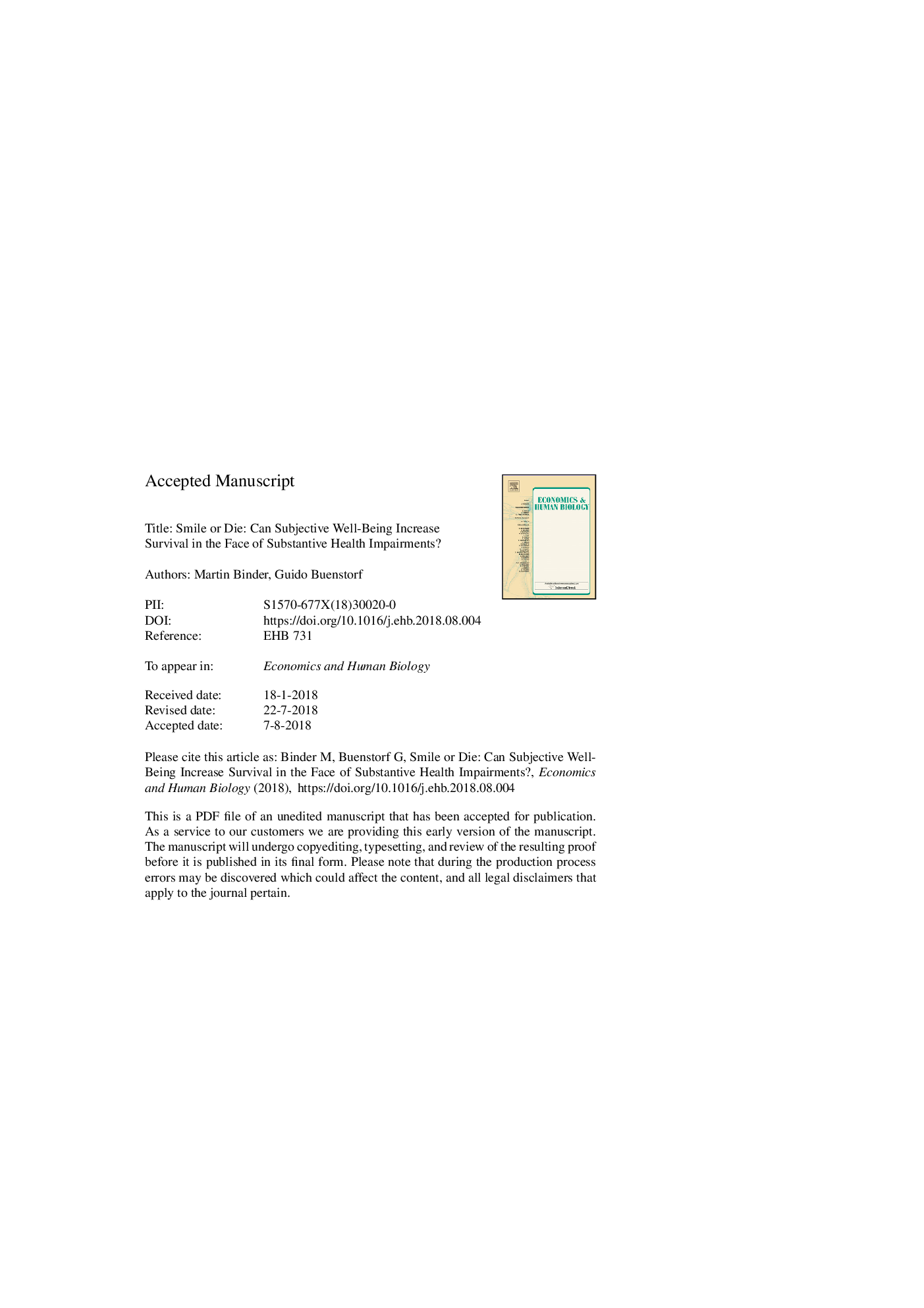| Article ID | Journal | Published Year | Pages | File Type |
|---|---|---|---|---|
| 11004772 | Economics & Human Biology | 2018 | 41 Pages |
Abstract
A robust relationship between subjective well-being and mortality has been established in the literature, but few studies address how subjective well-being interacts with the impact of concrete diseases on survival. In addition, issues of endogeneity between bad health and subjective well-being are ignored when it comes to survival. We assess both for the British Household Panel Survey (BHPS; 1991-2008) and specifically analyze whether subjective well-being predicts better chances of surviving diseases such as cancer or heart conditions. We find that several of the studied diseases consistently decrease survival chances in our sample (e.g. hazard ratio 3.47 for cancer), also when controlling for the severity of health problems. But our results do not suggest that well-being mitigates the effect these diseases have on mortality. Life satisfaction also does not predict longer survival in the data set if we control for the endogeneity of subjective well-being.
Related Topics
Life Sciences
Agricultural and Biological Sciences
Agricultural and Biological Sciences (General)
Authors
Martin Binder, Guido Buenstorf,
